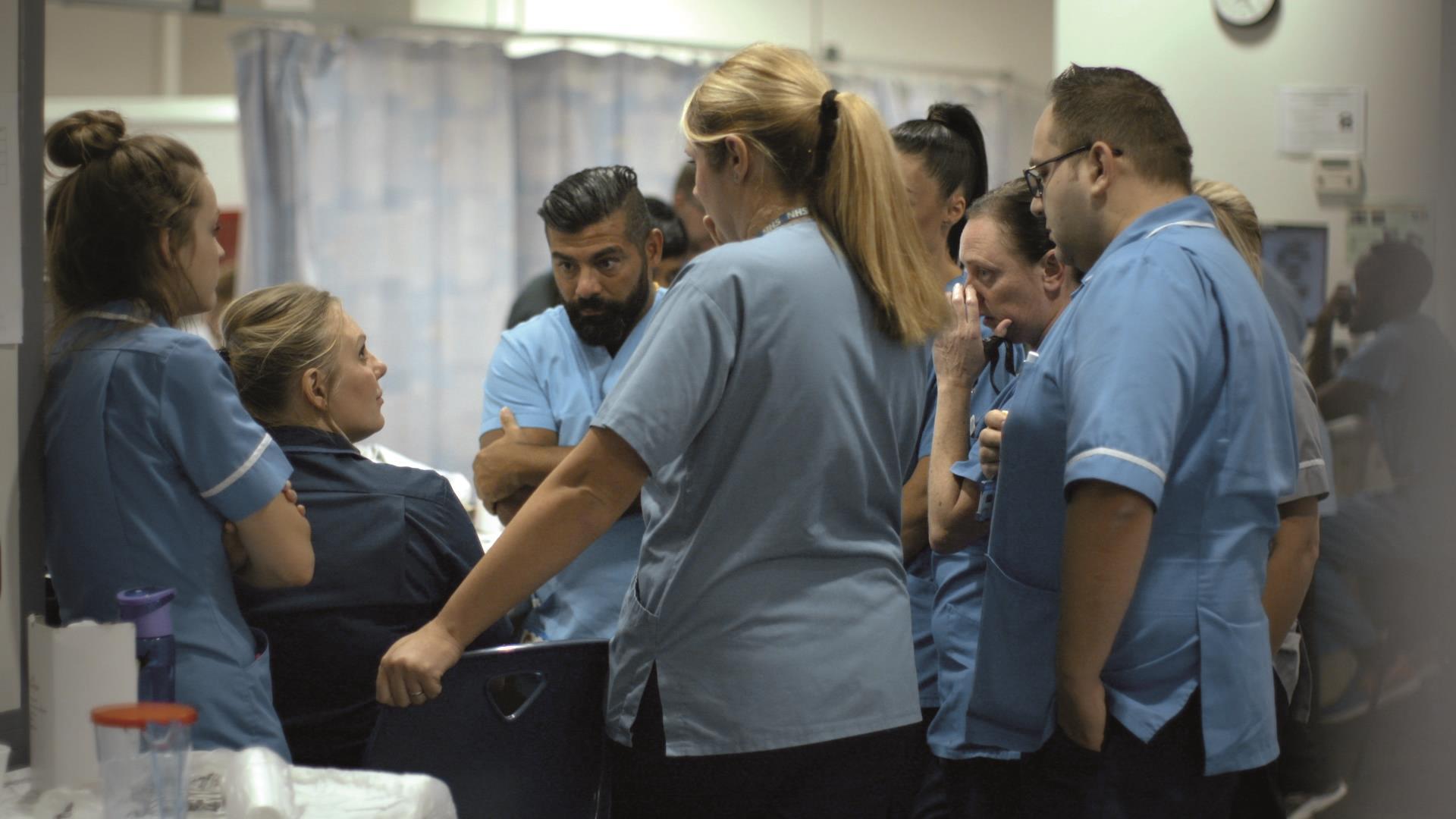Hearing someone is in a critical condition can truly make your heart drop, can't it? It's a phrase that often brings a rush of worry, a deep feeling of concern, and so much uncertainty about what comes next. That word, "critical," seems to carry a lot of weight, you know, like it means something really serious has happened. It's almost as if the very sound of it makes us brace for the worst possible news.
For many people, the immediate thought is often about life and death, and that's a very natural reaction. When we hear about someone being in this kind of state, it’s like our minds instantly jump to the most frightening possibilities. Yet, the word "critical" actually has a few different meanings, some of which might surprise you, and not all of them are about health, though they all point to something important or a big turning point, in a way.
This article aims to shed some light on what "critical condition" truly means, especially in a health setting. We'll look at why it's a serious term, what it tells us about a person's health, and what it implies for their care. Understanding this phrase can help us feel a bit more prepared and perhaps a little less overwhelmed when we hear it, you know, just to have a clearer picture.
Table of Contents
- What "Critical" Truly Means Beyond Health
- The Medical View: What "Critical Condition" Implies
- Supporting Someone in Critical Condition
- Common Questions About Critical Health
- Looking After Yourself When Facing Critical News
What "Critical" Truly Means Beyond Health
The word "critical" carries a lot of different feelings and ideas, doesn't it? It's not just a term used in hospitals. For instance, when we talk about someone being "critical" of something, it means they are, in a way, inclined to find fault or to judge with severity, often too readily. Think about parents who are too critical; it can actually make their children anxious, so you see, it really does mean saying what you think is bad about somebody or something.
Then there's the idea of "critical" as reflecting careful analysis and judgment. This is like when someone offers a critical appreciation of a filmmaker's work, which means they are really looking closely at it, making skillful judgments as to its truth or merit. It's about a thorough and analytical evaluation or examination of something, particularly by making judgments or forming opinions based on careful assessment. So, it can mean thinking deeply and pointing out errors, too.
The word "critical" can also describe a moment or a situation that's a turning point, or even a crisis. For example, a "critical shortage of food" means there's a very serious lack of it, which could cause a big problem. This sense of the word shows something is incredibly important or, in some respects, verging on an emergency, where things could go one way or another, and the outcome is pretty much uncertain.
So, you can see, the word "critical" almost always points to something that is very important, or something that demands a lot of attention and careful thought. Whether it's about someone being inclined to criticize, or a situation that's at a turning point, or a deep analysis, the common thread is often severity, importance, or a significant evaluation. This background helps us understand why the term "critical condition" in health carries such a serious weight, as a matter of fact.
The Medical View: What "Critical Condition" Implies
When medical professionals say a patient is in a critical condition, they are talking about a very specific and serious state of health. It means the person is having unstable and abnormal heartbeat, blood pressure, and other vital signs. This isn't just a slight deviation; it means the body's main systems are not working as they should, and they are not staying steady on their own, you know, they are pretty much fluctuating a lot.
An unstable heartbeat, for instance, might mean it's too fast, too slow, or just very irregular. Abnormal blood pressure could be dangerously high or incredibly low, which can really affect how blood flows to important organs. These kinds of changes show that the body is struggling quite a bit, and it needs a lot of help to keep going. It's a situation where constant attention and support are absolutely needed.
This state of health means that the person's life is, in a way, at risk, and they need continuous medical observation and often, very specific interventions. It's not a condition where someone can simply rest and get better on their own. Instead, it requires a lot of specialized care, often in a very intensive setting, so that medical teams can try to bring their body back to a more stable state, you see.
Key Signs of a Critical Health Status
When someone is in a critical health status, medical teams are usually watching a few key things very closely. Their vital signs, like heart rate, breathing, and blood pressure, are often unstable, as we've talked about. This means these numbers are not staying within a safe range, and they might change quickly without warning. It's like the body's internal balancing act is really off, you know, and it's struggling to find its footing.
Often, people in this condition might need help from machines to do basic life functions. This could mean a ventilator to help them breathe, or medications to keep their blood pressure at a safe level. They might also have monitors attached to them that constantly track every little change in their body, providing real-time information to the medical team. This kind of equipment is there to support the body when it can't quite manage on its own, basically.
Another sign might be that their organs, like their kidneys or liver, are not working properly, or are even failing. This can lead to a buildup of harmful substances in the body, or other serious problems. The medical staff are looking at many different parts of the body to understand the full picture and decide what kind of help is most needed, for example, they might be running many tests.
The goal of all this monitoring and support is to try and stabilize the person's condition. It's about giving the body a chance to recover by taking over some of the work it can't do by itself. So, while it's a very serious situation, it also means that a lot of effort and advanced medical care are being given to help the person through it, which is pretty important.
Why Someone Might Be in a Critical State
There are many reasons why a person might find themselves in a critical state of health, and these reasons are often very serious. A common cause could be a severe injury, like from a major accident, where the body has taken a lot of damage. This kind of injury can affect multiple body systems at once, making it hard for them to keep working properly, you know, it's a lot for the body to handle.
Serious illnesses are another big reason. Conditions like a very bad infection that has spread throughout the body, or a severe heart attack, can put immense strain on a person's vital organs. When these illnesses are very advanced, they can cause the body's systems to start shutting down or to become incredibly unstable, and that can happen quite quickly, too.
Sometimes, complications from surgery can also lead to a critical condition. Even with careful planning, unexpected issues can arise during or after a medical procedure that make a person's health take a sudden turn for the worse. This is why patients are watched so closely after operations, because doctors are always on the lookout for any signs of trouble, naturally.
Major organ failure, like kidney failure or lung failure, is another direct path to a critical state. When a main organ stops working effectively, it throws the whole body out of balance. This kind of situation requires immediate and intensive medical intervention to try and support the failing organ or to take over its function, so, it's a race against time, really.
Essentially, a critical condition means that the body's most important systems are struggling significantly, and they need a lot of outside help to keep going. It's a sign that the body is fighting a very serious battle, and medical teams are doing everything they can to support it through this very difficult time, as a matter of fact.
The Road Ahead: Care and Recovery
When someone is in a critical condition, they are almost always cared for in an intensive care unit, which people often call the ICU. This is a very specialized part of the hospital where patients get constant, round-the-clock monitoring and very focused medical attention. The staff there are highly trained to deal with very sick people, and they have all the equipment needed to support life functions, you know, everything is right there.
In the ICU, patients receive continuous monitoring of their vital signs, and their medical team makes quick adjustments to their treatment as needed. This might involve different medications to support their heart or blood pressure, or perhaps even procedures to help specific organs. The goal is always to stabilize the patient, which means getting their body to a point where it's not in immediate danger, and its systems are working a bit more steadily, more or less.
The path to recovery from a critical condition can be quite long and, in some cases, it's a very uncertain one. It truly depends on what caused the critical state, how severe it is, and how the individual's body responds to treatment. There are times when people make a full recovery, and other times when the road is much harder, with lasting effects, which is just the reality of it, sadly.
Family members often have many questions during this time, and medical staff try their best to keep them informed about the person's progress, or lack thereof. It's a period of intense waiting and hoping for everyone involved. For more general information on what happens in an intensive care unit, you could look at a reputable health information source, such as the National Health Service website, which explains things pretty well.
Supporting Someone in Critical Condition
When a loved one is in a critical condition, it can feel like the world has stopped, and knowing how to help can be really hard. One of the most important things you can do is to communicate openly with the medical team. They are the ones with the most up-to-date information about the person's health, and they can explain things in a way that makes sense, you know, they are there to help you understand.
It's okay to ask questions, even if they seem small or if you feel like you've asked them before. Medical staff understand that this is a very stressful time, and they want to make sure you have the information you need. You might even consider having one person act as the main point of contact for the family, to help streamline communication and make sure everyone gets the same updates, which can be very helpful, actually.
Providing emotional support, even if the person is unconscious, can also be very meaningful. Some families choose to sit by the bedside, talk to their loved one, or play their favorite music. While the person may not respond in the way you expect, studies suggest that hearing familiar voices or sounds can sometimes be comforting. It’s a way to show you are there, even when things are so difficult, and that can mean a lot.
Remember to also look after yourself during this incredibly tough time. It’s easy to forget your own needs when you are so worried about someone else. Eating, resting, and taking short breaks are really important so you can keep your strength up. Learn more about staying informed on our site, as we have more resources that might help you through this.
Common Questions About Critical Health
Is critical condition always life-threatening?
Yes, in a medical sense, a critical condition is pretty much always considered life-threatening. It means the person's vital signs are unstable, and their body's systems are not working well on their own. This requires constant medical support and attention to try and keep them alive. It's a very serious situation where the risk to life is incredibly high, so, it's not something to take lightly at all.
Can someone recover from critical condition?
Yes, absolutely, people can and do recover from a critical condition. Recovery truly depends on many factors, like the specific illness or injury, how quickly they received medical help, and their overall health before becoming sick. It can be a very long and difficult journey, sometimes with lasting effects, but recovery is certainly possible. It takes a lot of intensive care and often, a lot of time, too.
What's the difference between critical and stable condition?
The difference between critical and stable condition is quite significant. Critical means the person's vital signs are unstable and abnormal, requiring constant medical support because their life is at risk. Stable, on the other hand, means their vital signs are within a normal range and are not changing rapidly, so, they are pretty much steady. A stable patient might still be very sick, but their immediate life is not in danger, and they don't need the same level of intensive care.
Looking After Yourself When Facing Critical News
When someone you care about is in a critical condition, the emotional toll on you can be incredibly heavy. It's very natural to feel a wide range of intense feelings, like sadness, fear, anger, or even a sense of helplessness. Allowing yourself to feel these emotions, rather than trying to push them away, is a really important step in coping with such a stressful situation, you know, it's okay to feel it all.
Talking to someone you trust, like a close friend, a family member, or even a counselor, can be very helpful. Sharing your worries and feelings can make them feel a bit lighter, and it reminds you that you are not alone in this. Many hospitals also have support services or social workers who can offer guidance and a listening ear during these difficult times, which is pretty much a good resource.
It's also important to try and maintain some sense of routine in your own life, if possible. Things like eating regular meals, getting enough rest, and taking short breaks from the hospital can help you keep your strength up. Even a short walk or a few moments of quiet can make a difference in managing the stress. Remember, taking care of yourself allows you to be better able to support your loved one, too it's almost a necessity.
This period can be a marathon, not a sprint, and it requires a lot of patience and resilience. Be kind to yourself, and understand that it's okay to not be okay all the time. Find support resources here if you need someone to talk to, or ideas for how to manage your own well-being during this incredibly challenging time. Knowing what "critical condition" means can help, but dealing with the feelings it brings is a separate, very personal journey, as a matter of fact.



Detail Author:
- Name : Dewayne Greenfelder
- Username : ana.reynolds
- Email : cbartoletti@yahoo.com
- Birthdate : 1979-04-27
- Address : 1549 Gaylord Shoal Pagacport, IA 55697
- Phone : 1-341-638-2759
- Company : Keeling-Crist
- Job : Orthotist OR Prosthetist
- Bio : Et voluptatibus sit eos possimus voluptas consequatur quos omnis. Beatae aut accusantium rerum tempore totam tempora saepe cum. Voluptas et incidunt voluptatem veniam.
Socials
twitter:
- url : https://twitter.com/cassin1974
- username : cassin1974
- bio : Quaerat voluptatibus qui eveniet sint dolor. Accusantium minus nobis alias. In praesentium sed accusamus mollitia maxime sed beatae unde.
- followers : 4943
- following : 146
linkedin:
- url : https://linkedin.com/in/salma4383
- username : salma4383
- bio : Libero facilis consequatur quisquam dolorem id.
- followers : 5547
- following : 411

